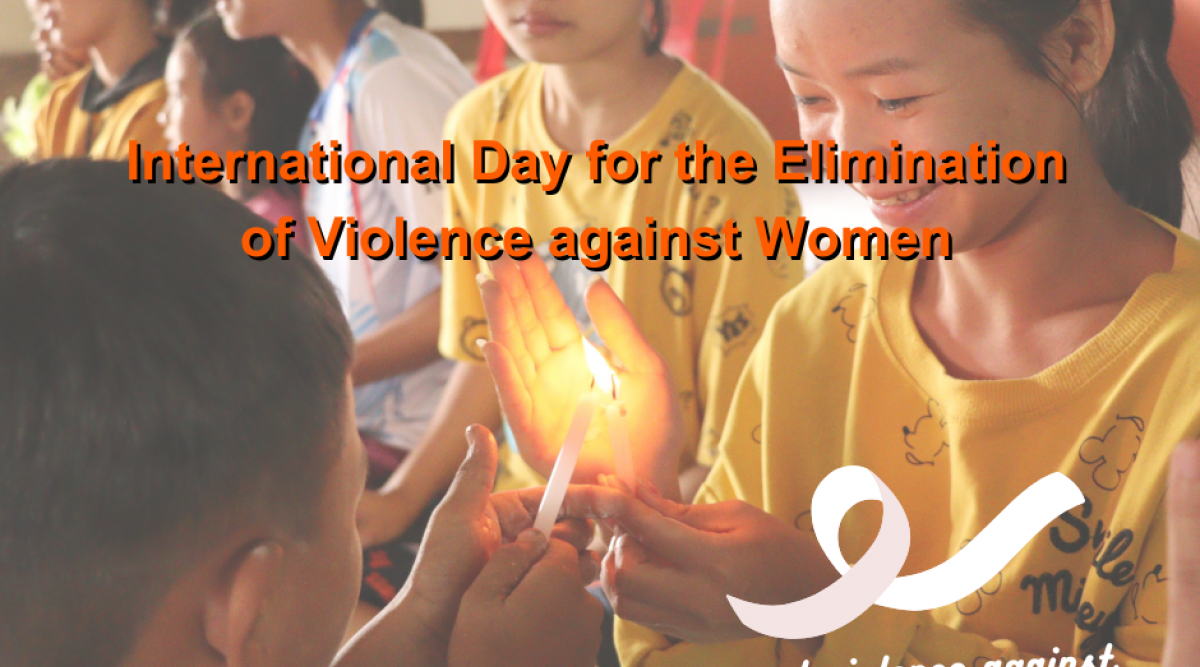On this International Day for the Elimination of Violence Against Women, the Karen Human Rights Group (KHRG) urgently calls for decisive and concrete action from regional and international stakeholders to fight against all forms of violence committed against women and girls. Despite enduring a vast array of human rights abuses, women and girls in Southeast Burma remain strong and resilient. KHRG acknowledges the gendered violence that women and girls suffer throughout Burma and stresses the need for the enforcement of accountability, demanding justice for the victims and their families.
According to documentation by KHRG and other human rights organisations, there has been an increase in human rights violations across Burma since the 2021 coup. The State Administration Council (SAC) has committed a wide range of serious crimes affecting civilians. Women and girls in Karen State are subjected to different forms of human rights violations and abuses, including forced labour, the use of human shields, and sexual violence, carried out by SAC soldiers. The pervasive and systematic violence by the military junta against women persists due to the absence of accountability for Burma Army soldiers in Burma, who cannot be judged in civilian courts under the 2008 Constitution, and a prevailing culture of impunity for the perpetrators.
The indiscriminate attacks by SAC troops and the occurrence of armed clashes between SAC troops and local resistance forces have also led to the displacement of a large number of civilians, many of whom are pregnant women and women with new-born babies. While being displaced, these women encounter difficulty in accessing essential basic needs such as nutritious food, clean water, proper sanitation, and adequate healthcare. As reported to KHRG, some pregnant women have died during childbirth due to the absence of essential medical assistance during displacement. This is also the consequence of travel restrictions imposed by the SAC in certain areas, and hence the denial of healthcare, shelter, and safety. Many who do not flee their villages also face similar issues and are also at risk of being harmed by the SAC’s indiscriminate shelling and air strikes.
In addition, KHRG’s documentation highlights a rise in non-conflict-related sexual violence perpetrated by civilians targeting women and young girls in Southeast Burma. In many instances, victims and their families hesitate to report these incidents due to a lack of support within the community. The community’s tolerance of such acts, coupled with the stigma and criticism faced by survivors and their families, often prevents them from speaking out and seeking justice. Moreover, survivors not only face stigma and mistreatment from their community but also struggle with the lasting effects of the trauma. The absence of proper mechanisms to hold civilian perpetrators accountable, including under the Karen National Union (KNU) judicial system, perpetuates ongoing violence against women and forces survivors to remain silent. This culture of victim-blaming is reflected in the weak legal action taken by the KNU on gender-based violence, a trend that has worsened since the coup due to the added difficulties of ensuring justice amidst a conflict.
While we applaud and recognise the efforts made by local community-based organisations, local civil society organisations, and non-governmental organisations to stop violence against women and assist survivors, we believe more can be done through concrete and collaborative actions: there is an urgent need for responsive services from local and regional authorities, as well as concrete action by international stakeholders. Everyone, men and women alike, has a responsibility to fight for the elimination of violence against women and girls in Southeast Burma and beyond. This violence must end immediately and decisively. We must also come together to create safe spaces within the community where survivors of violence can seek refuge, share their experiences, and access support without fear of judgment and retaliation. Comprehensive support services, including counselling and legal assistance, must be established to aid survivors and their families. It is crucial for relevant stakeholders to keep advocating for the enforcement of existing international legal frameworks to specifically address sexual violence and gender-based violence and ensure that perpetrators are held accountable for their actions. To eradicate all forms of violence against women, it is also imperative that we address the ongoing conflict in Burma and acknowledge the brutal acts perpetrated by the Burma Army/SAC, which plays a significant role in the occurrence of pervasive violence and human rights abuses in the country.
Media contacts:
Saw Nanda Hsue, Advocacy Coordinator at KHRG, hsue@khrg.org
Naw Paw Lah, Advocacy Officer at KHRG, nawpawlah@khrg.org


